Thomas Hart Benton Links Pollock and Rubens
In 1926, Thomas Hart Benton was a teacher at the Art Students League of New York. Disappointed by the lack of a painting manual, he set about writing his own. He dedicated his essay to “my class at the Art Students League which made apparent the need of some systematic study of composition.” The manuscript draft of this notable work will be coming to auction in our May 4 sale of Autographs.
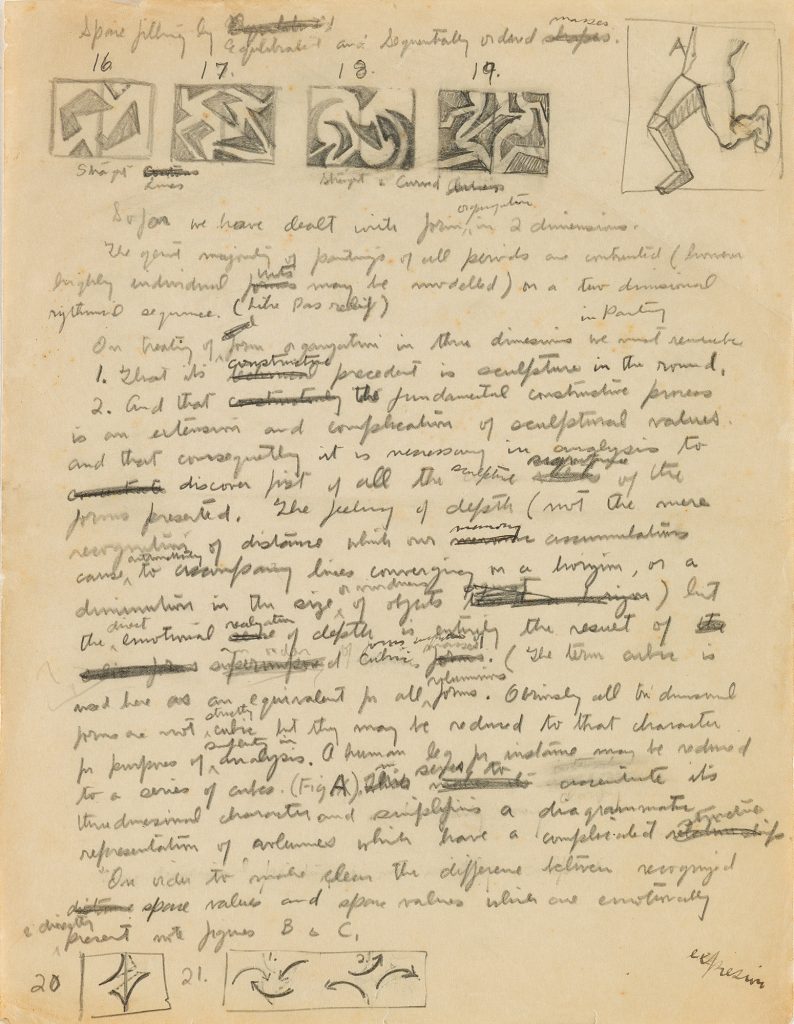
Lot 435: Thomas Hart Benton, manuscript working draft for The Mechanics of Form Organization in Painting, with more than 20 drawings, 1926.
Estimate $20,000 to $30,000.
The essay, titled Mechanics of Form Organization in Painting, was not only among the first publications on abstract composition by an American painter, but also had a significant impact upon Benton’s pupil, Jackson Pollock.
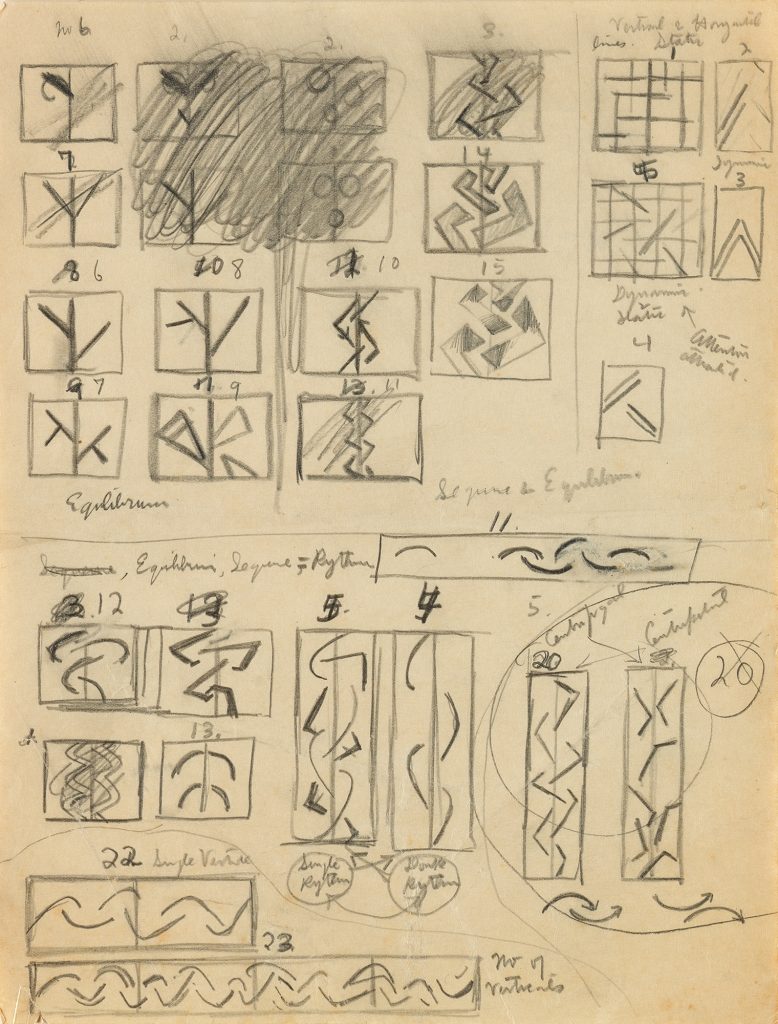
Lot 435: Notes from Thomas Hart Benton’s manuscript draft for The Mechanics of Form Organization in Painting, 1926.
The manuscript comprises 39 hand-written pages, with more than 20 graphite drawings illustrating text.
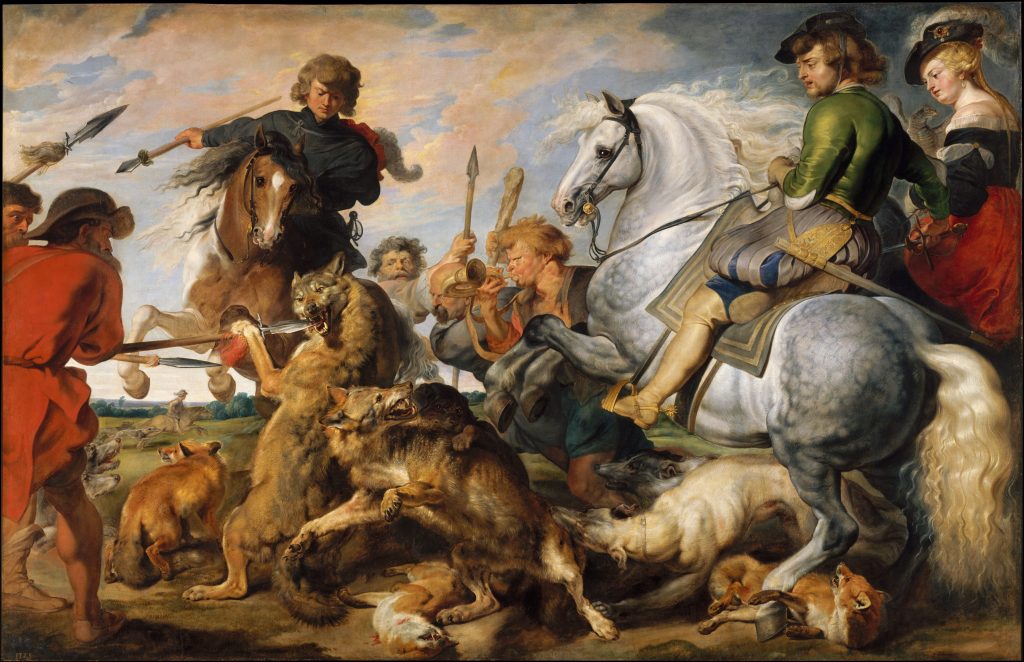
Peter Paul Rubens, Wolf and Fox Hunt, oil on canvas, circa 1616. Courtesy The Metropolitan Museum of Art.
Some of the dramatic diagrams Benton included in his manuscript are based on Wolf and Fox Hunt, a monumental circa 1616 canvas by Peter Paul Rubens. The masterwork is currently in the collection of The Metropolitan Museum of Art, and was acquired in 1910 with the John Stewart Kennedy Fund. It’s easy to imagine the 27-year-old Benton sitting in the gallery, checking his blocky shapes against the harrowing scene, but of course it’s impossible to know if he copied the forms from life or from a book.
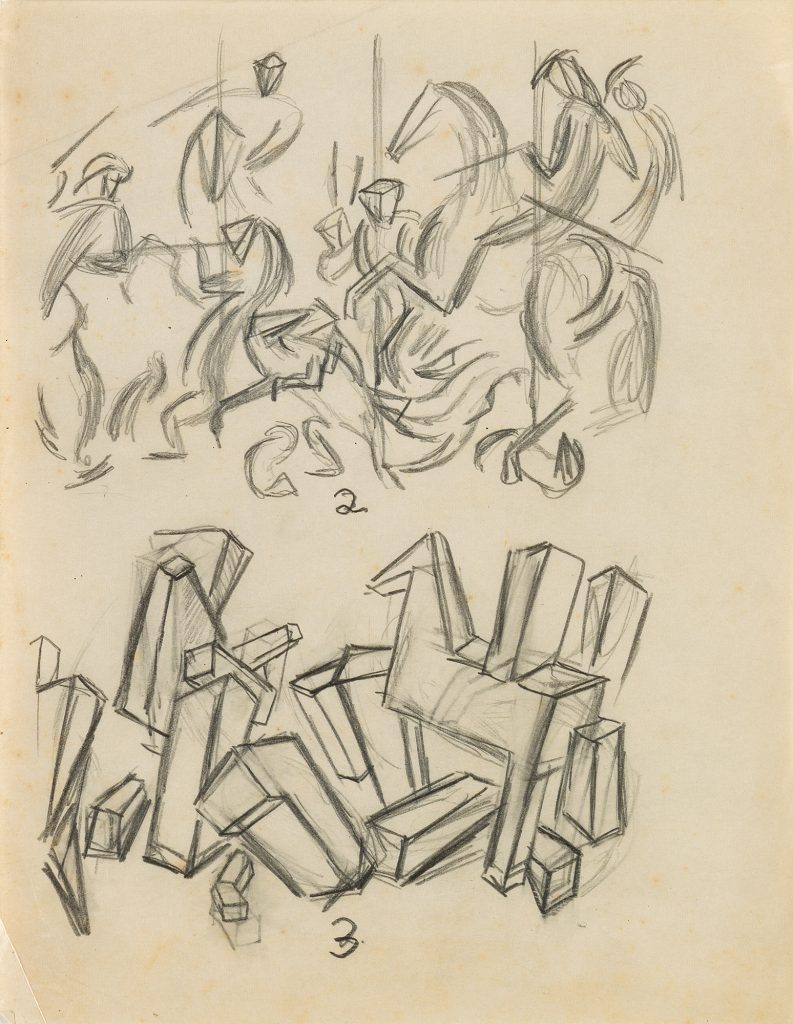
Lot 435: Thomas Hart Benton, manuscript working draft for The Mechanics of Form Organization in Painting, with more than 20 drawings, 1926.
Estimate $20,000 to $30,000.
Benton followed the advice he gave in his essay. According to Louis Menand in The New Yorker, he “took a lot of pride in his technical solution to [the limitation of flatness in painting]. He called his method “the bump and the hollow,” and he published a multipart article on it, Mechanics of Form Organization in Painting, in Arts magazine, in 1926 and 1927. It became his signature compositional look: it’s how you know you’re looking at a Benton. His paintings, whatever their subject matter, are structured as rows of highly contoured forms, with exaggerated chiaroscuro to mimic three-dimensionality. His practice was to create a complete maquette of the scene he wanted to paint, light it dramatically, and then copy it onto the canvas.”
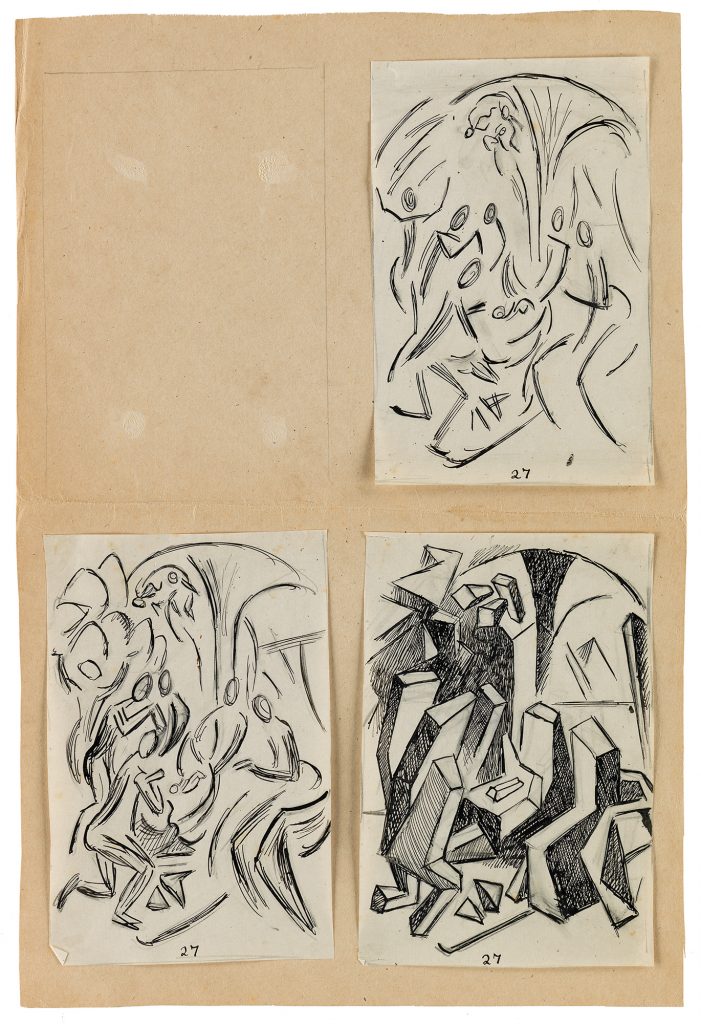
Lot 435: Tipped-in studies by Benton in the working manuscript draft of The Mechanics of Form Organization in Painting, 1926.
The sale includes a strong selection of artist signatures. Browse the full catalogue.
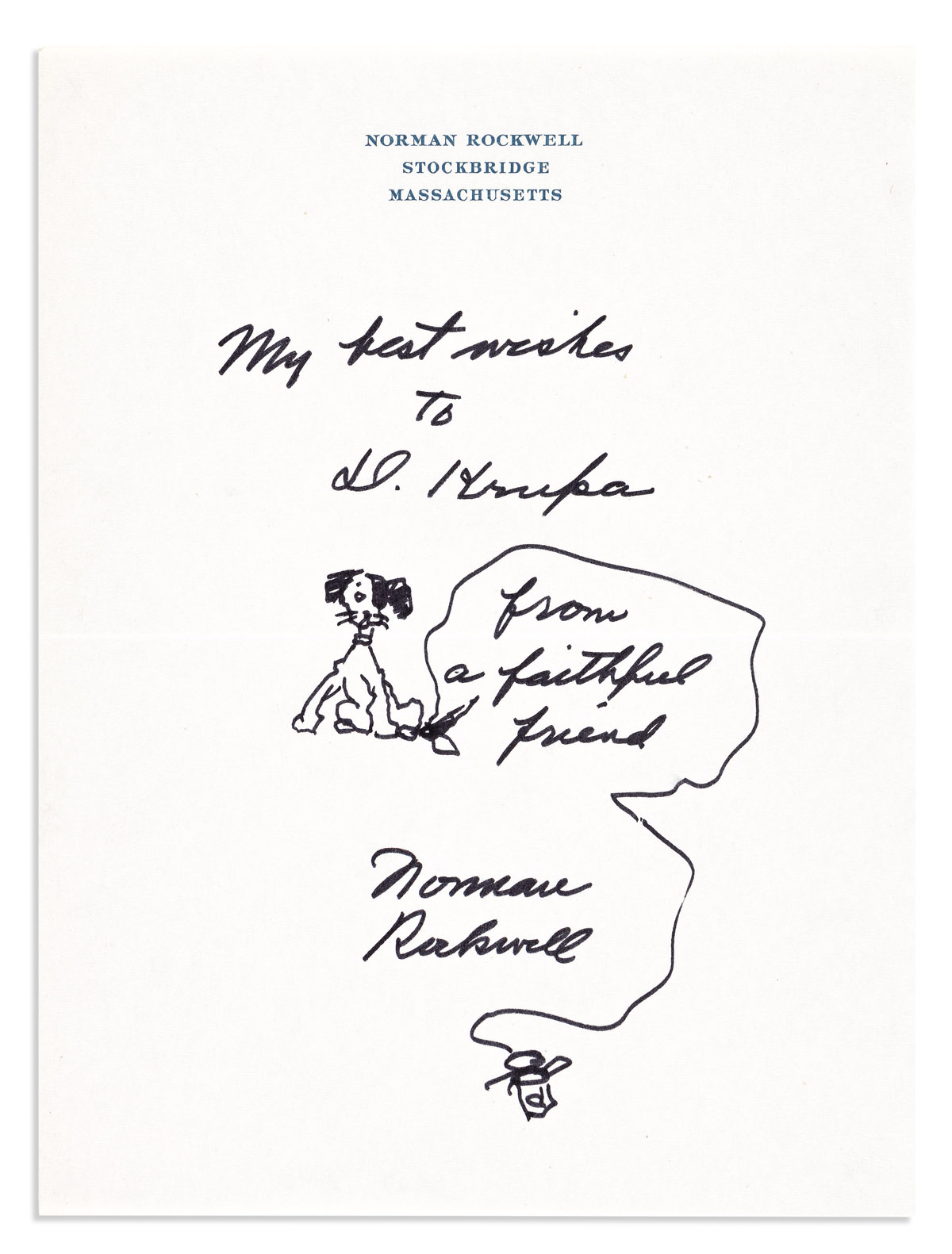
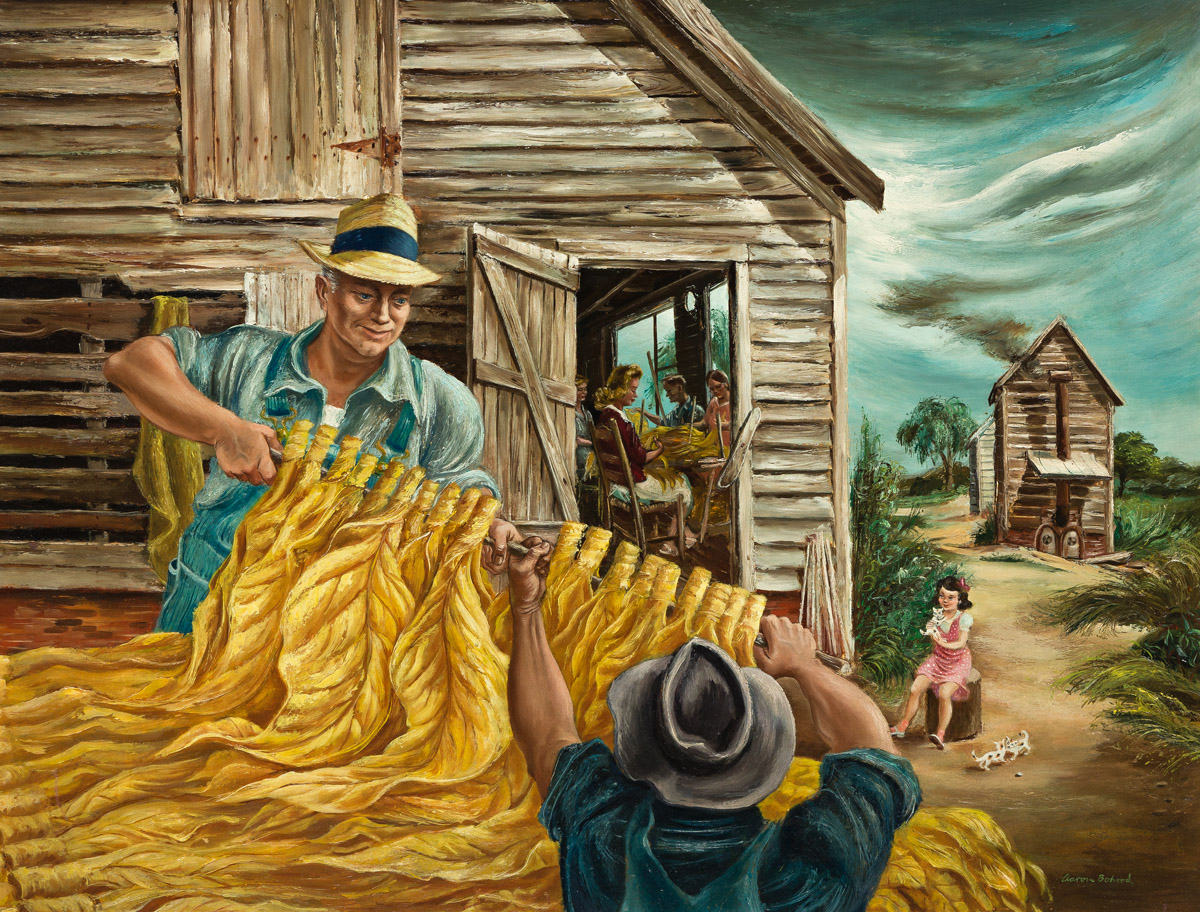
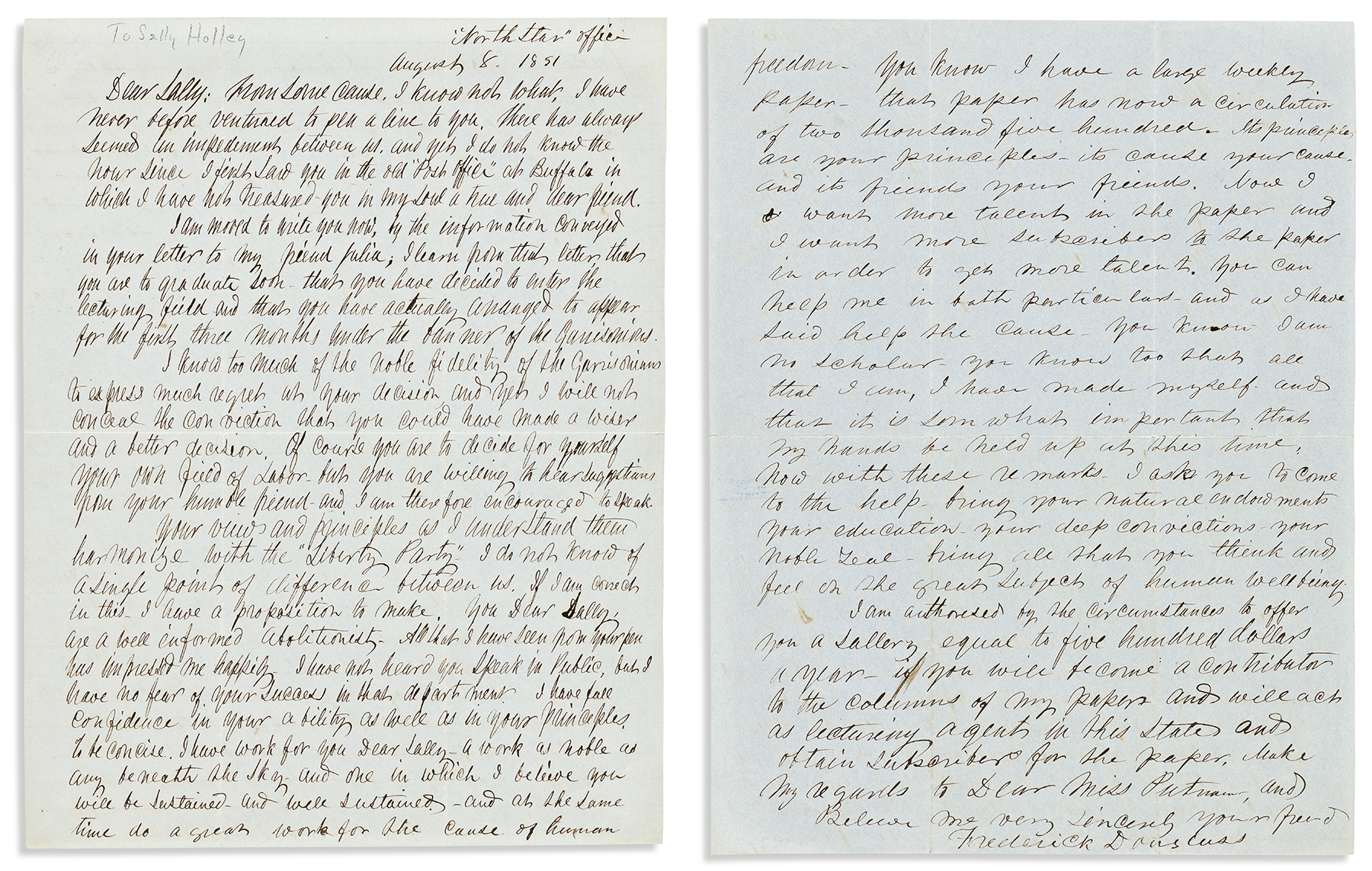












![Grace Meschery-McCormack shares about two copies of Fernando de Rojas’s ‘La Célestine,’ including a limited edition copy illustrated by Pablo Picasso.
At auction April 22. Learn more about the works at the link in our bio.
#Rarebooks #rarebookdealer #antiquarianbooks #auctions
_______________________________________
Music Credit:
Schubert - Piano Quintet in A major ‘The Trout’, D. 667 - IV. Andantino – Allegretto
Music provided by Classical Music Copyright Free on Youtube [https://tinyurl.com/visit-cmcf]
Watch: • Schubert - Piano Quintet in A major ‘...]](https://scontent-iad3-1.cdninstagram.com/v/t51.75761-15/491443494_18499096345036585_5935932878956098058_n.jpg?stp=dst-jpg_e35_tt6&_nc_cat=107&ccb=7-5&_nc_sid=18de74&_nc_ohc=Kjf2AzWLeY8Q7kNvwEQYrfY&_nc_oc=Adn_Uzi4Nwl1nHCsTtuLCIkthuYOWwKedtxovtcdMSYhpbHQGScR7QSzzN2rD0v-khE&_nc_zt=23&_nc_ht=scontent-iad3-1.cdninstagram.com&edm=AM6HXa8EAAAA&_nc_gid=FPDAGVM_rTr2puw1j4XAzg&oh=00_AfJ208MgBjdU2V6q-XkKbkWAfCqb8CZ3fXdQX5lONhia-A&oe=68242151)


